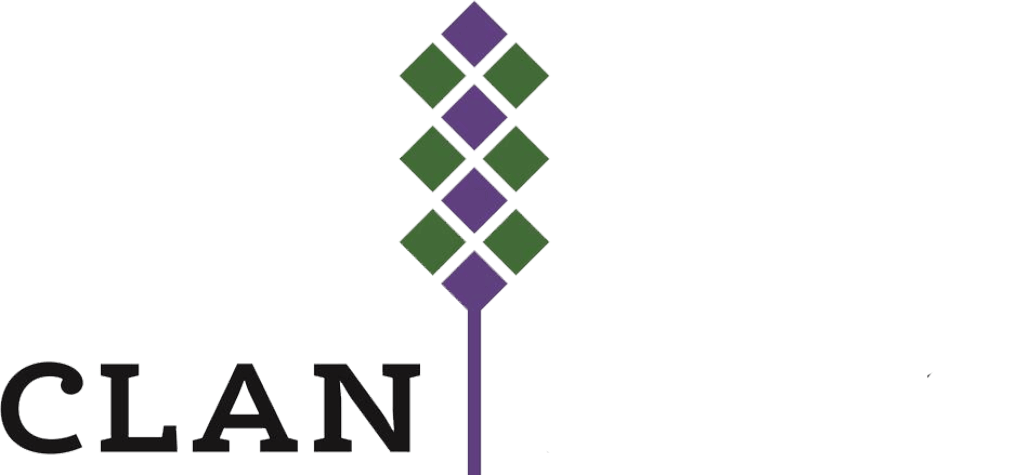Thinking of applying for the Clan Trust Scholarship? Hear from 2023 scholar Ludo de Falbe
Are you considering applying for the Clan Trust Scholarship? We spoke with 2023 Clan Trust scholar, Ludo de Falbe to learn more about his project and experience as a Clan Trust scholar. Read on to find out how the scholarship supported his journey.
1. Tell us a bit about your background and what led you to apply for the Clan Trust Scholarship?
A childhood in the countryside formed the basis for my interest in plants; lots of exploring nature, tree-climbing, and helping my parents outdoors (often with my brother or unsuspecting friends roped in to assist!).
I began my undergraduate at the University of Durham where I read Natural Sciences (biology and philosophy). It was there that my fascination with the science of crops began, largely thanks to my academic advisor, Dr. Topping, who encouraged me to join the Gatsby Studentship programme which supports young researchers.
With an idealistic drive to help ‘feed the world,’ I decided to pursue a master’s degree in crop sciences. Knowing I needed funding, I applied for the Clan Trust Scholarship.
2. What was your focus area for your farming education, research, or travel project? What inspired you to choose this topic?
After starting my masters in late 2023, I launched into two main projects. My independent report explored the regenerative agriculture movement, while my practical work in the Whitewoods Lab focussed on leaf air space development.
I chose these topics because they complemented each other - one broad and applied, the other niche and fundamental. Both had philosophical underpinnings that intrigued me. For example, regenerative agriculture raises questions like, what exactly is it? How can scientists measure its efficacy? Similarly, my practical work delved into the complexities of growth and shape formation in living organisms: If I were a leaf, how would I create an air space?
3. How did the scholarship support your project and goals? Were there any specific challenges or opportunities that it helped you overcome?
The Clan Trust Scholarship was instrumental in enabling me to focus on my studies without financial concerns. It gave me the freedom to fully explore both my theoretical and practical projects, bridging fundamental science with broader agricultural questions.
4. What did you learn during your scholarship experience that had the biggest impact on you or your career?
Over the past year studying crop sciences, I realised there’s often a rift between what academics believe about farming and how UK farmers actually work. Farmers are frequently categorised as ‘intensive’ or ‘organic,’ but my research into regenerative agriculture showed there’s a spectrum of practices. All farming is regenerative in some regard, which is the reason ‘RegenAg’ is criticised as nothing new. I consider the scientist responsible for figuring out the consequences of being ‘more’ or ‘less’ regenerative and offering a peer-reviewed base for education and policy which can support farms over generations.
5. How has the knowledge or experience you gained benefited your current work or future plans?
The scholarship and my Master’s programme have equipped me with the knowledge and credentials to work across multiple levels of crop development and agricultural policy. For now, I plan to focus on gaining practical farm experience to help the industry adapt to these evolving changes, and later would like to use to Master’s as a basis for a PhD or a job in industry.
6. What advice would you give to future applicants considering the Clan Trust Scholarship?
Write a clear, structured application that connects your past experiences to your current goals. Think carefully about where the scholarship could take you in your career. Having a strong sense of direction will help both your application and your journey.
7. Do you have any memorable moments or key achievements from your scholarship journey that you’d like to share?
One of the highlights of my scholarship experience was the camaraderie of my course mates, who came from all over the world. As the first cohort of a brand new course, we were an experiment, but I’m happy to say a successful one. A particularly enjoyable moment was when a classmate, Laura, brought in cinder toffee for everyone to try, only for us all, including the lecturer, have their jaws glued together by it!
8. How do you see the future of farming or rural industries evolving, and what role do you hope to play in that future?
In the UK, after sixty years of modern farming, I think we’ve largely maximised land productivity. The next steps should focus on improving water and nutrient efficiency while preserving biodiversity. Emerging technologies like CRISPR gene-editing, legalised in the UK last year, will play a key role in enhancing crop efficiency and diversifying agricultural options.
That said, I do not think these technologies are a silver bullet. Grassroots movements like regenerative agriculture are the key to meaningful change. I hope to contribute by bridging science, policy, and practical farming to help the industry adapt to the challenges facing farmers.
Applications for the Clan Trust Scholarship open again in January 2025.
Head over to our Awards and Funds page for more information - https://www.clantrust.org/clan-trust-scholarship

